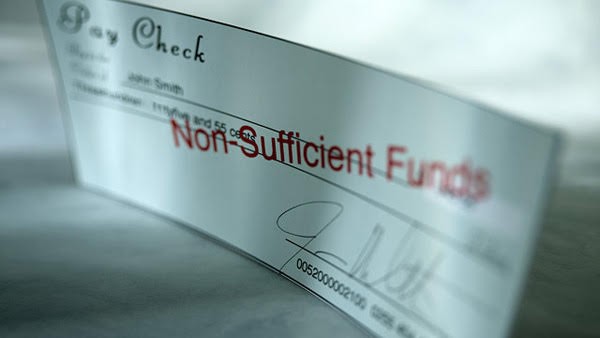Can one pin-point an evil mind in all cases of cheque bouncing?
There are two types of cases that come before our courts of justice. There are civil litigation cases and those that involve crimes. The trial courts are different for these two types of cases. Civil courts are presided over by judges. Criminal courts have magistrates deciding over crime matters. Of course, in smaller towns, the distinction gets blurred.

The civil courts usually decide on a matter of rights. Not right, but rights. Who owns what is usually the point of argument. The cases are fought by A against B. The one who moves the court is the plaintiff, because s/he has a complaint against the other, the defendant. There are some other terms one needs to know: complainant, opponent, intervenor, are a few.
Matters involving a crime are different. In these, it is not a matter of settling rights but of punishing the perpetrator called the accused. The person filing a complaint, say, regarding a robbery, does so at a police station. If the complaint is genuine, the accused is prosecuted by the State. This means that the government machinery takes over the complaint. The complainant becomes no more than a witness.
Cases of crime are penal offences. They entail fines, imprisonment, or both. The punishments are laid out in the Indian Penal Code. The quantum of punishments decides the hierarchy of the courts and also the possibility of bail and the amount, in terms of money.
A major difference distinguishes the civil and criminal matters. It’s what is called ‘mens rea’.Mens rea means a wicked mind, prior knowledge of guilt. In criminal matters, intent, a ‘bad’ mind, is a deciding factor.
How does our discussion up to now fit in with Section 138 cases—those involving ‘bounced’ cheques? And who, amongst the management, should be held responsible?
A limited company has a board of directors. There may be 2, 5, 10 or more directors. Some of them may be appointed by financial institutions that fund the company’s activities. Some others may be from labour unions. And a few may be government appointees. The question that now arises is this. If a cheque issued by the company bounces, are all these directors liable?
You be the Judge.
Cheque bouncing, due to insufficient funds, is a serious offence and can lead to imprisonment. And when people can use the law, the tendency is to misuse it. If one cheque has bounced, the whole board of directors can be dragged to court. Directors, independent directors, appointees et al. Would you, or would you not, convict all the accused?
This is where mens rea comes in. While it is assumed that issuing a cheque without sufficient funds is indicative of a guilty mind, do all the directors have a mens rea? Even those at arm’s length?
Over the years, there has been a lot of debate on this issue. Thankfully, the law has crystallised. Only those directors handling day-to-day affairs and those signing cheques are to be held responsible. Those not in the know are deemed innocent, to start with. We believe it is an intelligent decision. However, lower courts, often, do not know of this settled view and continue to drag other directors to court.
This author has, however, often questioned the concept of mens rea in genuine cases of businesses going haywire. A post-dated cheque, given with full confidence, may later bounce. Can one pinpoint an evil mind in this case?
Courtesy: Moneylife
Courtesy: Moneylife
"Loved reading this piece by BAPOO M. MALCOLM?
Join LAWyersClubIndia's network for daily News Updates, Judgment Summaries, Articles, Forum Threads, Online Law Courses, and MUCH MORE!!"
Join LAWyersClubIndia's network for daily News Updates, Judgment Summaries, Articles, Forum Threads, Online Law Courses, and MUCH MORE!!"
Tags :Others











